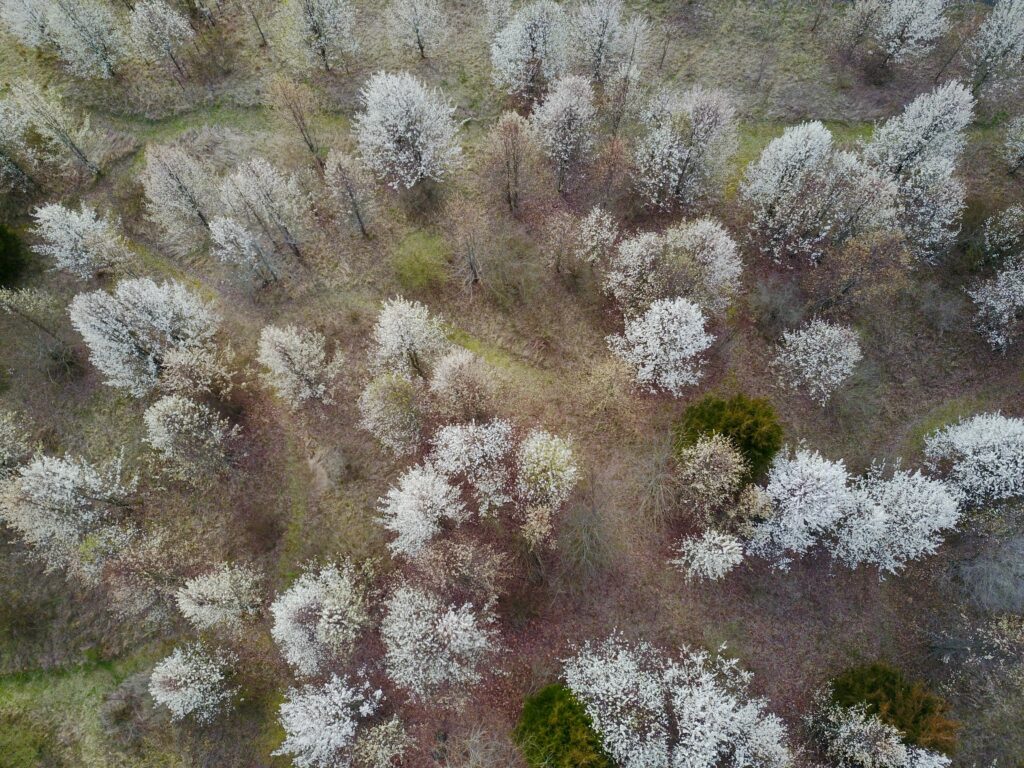As the spring season rolled around, so too did the early blooming white flowers of the Bradford Pear trees. These trees, once heralded for their beauty and ornamental value, have become an ecological threat, displacing native flora and disrupting ecosystems essential for pollinators and wildlife.
Licking County Pollinator Pathway, a coalition of local organizations, initiated a Bradford Pear “bounty” program, offering Licking residents an incentive to remove these invasive trees from their properties.
The program, supported by the Denison Venture Philanthropy Fund and several other partners, provides participants with a free, pollinator-friendly native tree as a replacement for each Bradford pear tree they remove.

“The distinctive white blooms of Bradford pears are a false harbinger of spring’s beauty, masking the harm they inflict on our local ecosystems,” Susan King, coordinator of Pollinator Pathway, said in a press release. “Our aim with the bounty program is to rectify this by encouraging the community to make environmentally conscious decisions about the trees in their landscapes.”
The bounty, which is funded by a small grant, is up to three native tree replacement seedlings.
Bradford pears — also known as the Callery pear, the Cleveland Select or the Chanticleer — were introduced to the United States from China and have spread uncontrollably in many parts of Ohio, where their sale and planting were outlawed in January 2023.
Their rapid proliferation threatens native plant species and, by extension, the insects and birds that rely on those native plants for food.
Jon Rice, Licking County resident and recreational farmer, has been dealing with the rapid spread of the invasive tree over the last few years and has experienced its negative effects firsthand.
“We’re really having a problem with fruit production,” said Rice, who lives in rural Licking County near Heath. “Everywhere that there’s Bradford Pears, basically without fail, there’s also a struggling fruit tree population.
This lack of fruit production is due to pollen transfer. Bradford Pear trees produce an abundance of flowers, and these flowers produce a significant amount of pollen. This pollen is transferred between trees by insects, primarily bees, which visit the flowers for nectar and inadvertently carry pollen from one tree to another.
“It’s been affecting a lot of farmers around me, especially those farming apples, pears, cherries, anything grown on trees,” Rice said. “The only real solution is to chop every single one of them down within about a five-mile radius.”
Doing so, however, would be extremely difficult, Rice noted.
As Rice, chainsaw in hand, strolls to the back of his property for a removal, he points out three smaller Bradford trees on his neighbor’s property.
“Those weren’t there this time last year,” Rice said. “They’re growing faster than we can keep up.”
As these trees spread, they begin to dominate the local flora. They grow quickly and densely, outcompeting native species for resources such as light, space, and nutrients.
“These trees offer nothing to our local wildlife,” explained Amy Mock, treasurer of the Licking Land Trust. “They’re essentially creating food deserts in our ecosystems.”
The removal initiative not only benefits the environment but also addresses practical concerns for property owners. Chance Patznick, the City of Newark’s cemetery/parks and recreation superintendent, highlighted the trees’ tendency to split during storms and their thorns’ potential hazards.
“Removing Bradford pears is about more than just enhancing our ecosystems,” Patznick noted. “It’s also about community safety and reducing the nuisances these trees can cause.”
Residents interested in participating can register on the Pollinator Pathway website and may qualify for up to three replacement trees. The trees offered include species like serviceberry and flowering dogwood, known for their benefits to pollinators and aesthetic appeal. The program will also distribute protective supplies to shield the young trees from deer, ensuring their survival and growth.
Jack Wolf writes for TheReportingProject.org, the nonprofit news organization of the Denison University Journalism program, which is funded in part by the Mellon Foundation and donations from readers.

